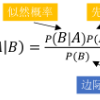We propose a novel stochastic reduced-order model (SROM) for complex systems by combining clustering and classification strategies. Specifically, the distance and centroid of centroidal Voronoi tessellation (CVT) are redefined according to the optimality of proper orthogonal decomposition (POD), thereby obtaining a time-dependent generalized CVT, and each class can generate a set of cluster-based POD (CPOD) basis functions. To learn the classification mechanism of random input, the naive Bayes pre-classifier and clustering results are applied. Then for a new input, the set of CPOD basis functions associated with the predicted label is used to reduce the corresponding model. Rigorous error analysis is shown, and a discussion in stochastic Navier-Stokes equation is given to provide a context for the application of this model. Numerical experiments verify that the accuracy of our SROM is improved compared with the standard POD method.
翻译:我们通过组合和分类战略,为复杂系统提出了一个新型的随机减序模型(SROM),具体地说,根据正正正正正正正正分解法的最佳性,重新定义了环球Voronoi熔化(CVT)的距离和中间体,从而获得一个时间依赖的通用CVT,每一类都可产生一套基于集束的POD(CPOD)基础功能。为了了解随机输入的分类机制,应用天真的Bayes预分类和组合结果。然后,对于新的输入,将使用与预测标签相关的CPOD基准函数集来减少相应的模型。展示了严格的错误分析,并对随机导航-斯托克斯方程式进行了讨论,以便为该模型的应用提供背景。数字实验证实,与标准的POD方法相比,我们的SROM的准确性得到了提高。




